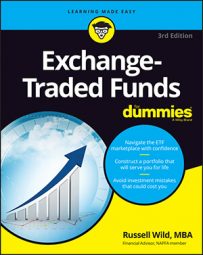Beyond the world of exchange-traded funds, an entirely different universe is filled with things called exchange-traded derivatives. A derivative is a financial instrument that has no real value in and of itself; rather, its value is directly tied to some underlying item of value, be it a commodity, a stock, a currency, or an ETF.
The most popular derivative is called an option. Think of an option as sort of a movie ticket. You give the cashier $8.50 to see the movie, not to hold some dumb little piece of cardboard. Certainly the ticket itself has no intrinsic value. But the ticket gives access (the option) to see the movie.
Most options in the investment world give you the right either to buy or sell a security at a certain price (the strike price) up to a certain specified date (the expiration date). Options are a prime example of a leveraged investment.
In other words, if you buy an option, you’re leveraging the little bit of money that you pay for the option — the premium — in hopes of winning big money. If you’re an option seller, you stand to make the amount of the small premium, but you risk losing big money. For the system to work, the sellers have to win much more often than the buyers . . . and they do.
Lately, options on ETFs have been hot, hot, hot . . . and growing hotter. Options on certain ETFs, most notably the SPY (which represents the S&P 500) and the QQQ (which represents the 100 largest company stocks traded on NASDAQ), trade just as many shares on an average day as the ETFs themselves.
On most days, options on ETFs like the QQQ and SPY trade more shares than any other kind of options, including options on individual stocks, commodities, and currencies.
You see, ETFs provide traders with the opportunity to trade the entire stock market, or large pieces of it, rather than merely individual securities. In the past, this was doable but difficult. You cannot trade a mutual fund on the options market as you can an ETF.
Much of this often frenetic trading in ETF options, at least on the buying side, is being done by speculators, not investors. If you have an itch to gamble in the hopes of hitting it big, options may be for you.
The most commonly traded options on U.S. exchanges include many individual stocks, but the most active of the active are all ETFs. The five most frequently traded, of late, are these:
| ETF | Ticker Symbol |
|---|---|
| SPDR S&P 500 | SPY |
| PowerShares QQQ Trust Series 1 | QQQ |
| S&P 500 Index (An index option created and managed by the Chicago Board Options Exchange) | SPX |
| iShares Russell 2000 | IWM |
| ProShares VIX Mid-Term Futures | VIXM |

